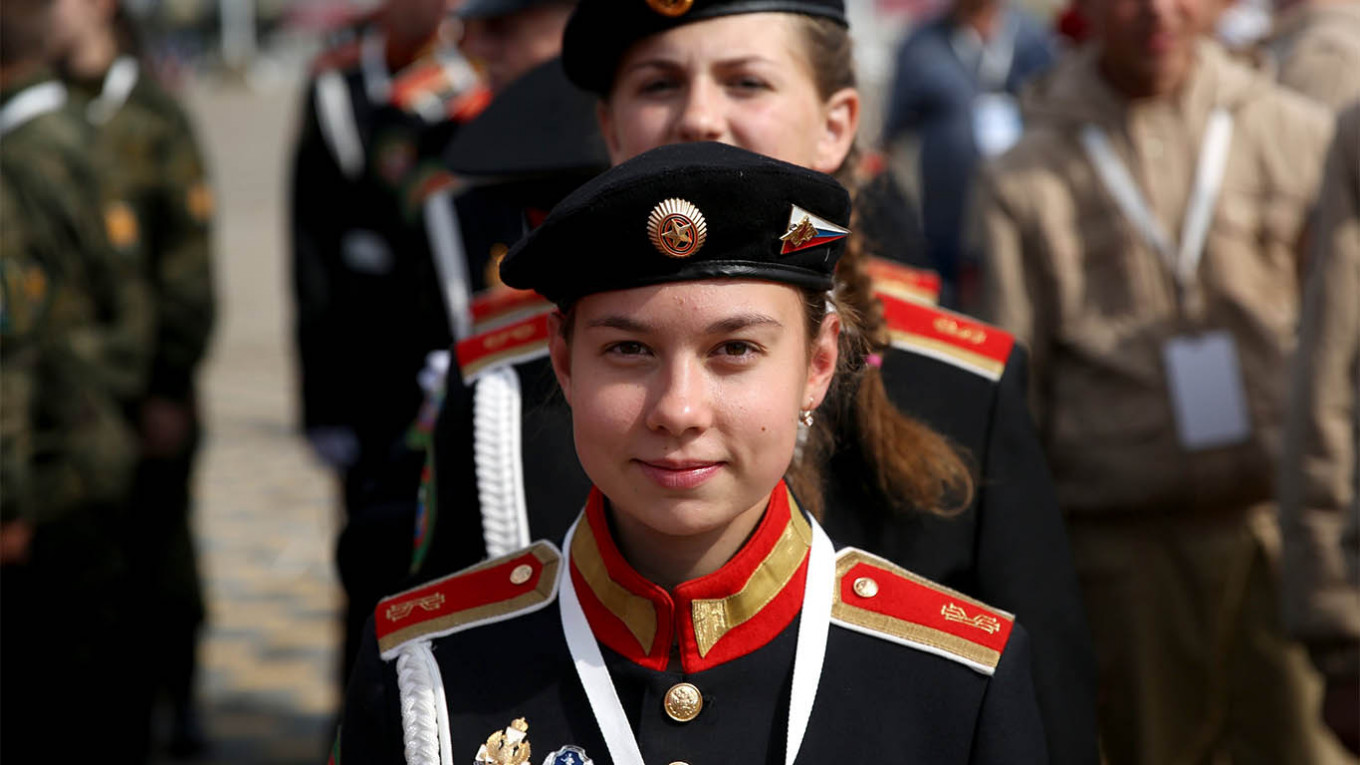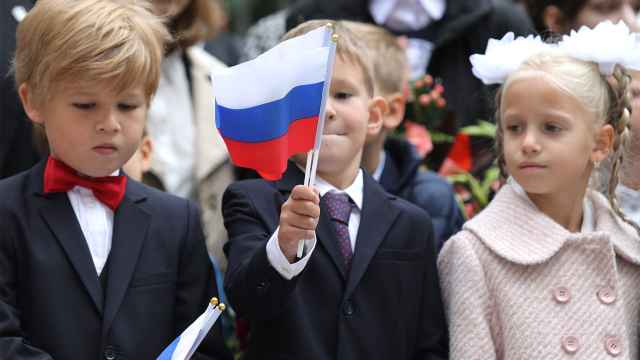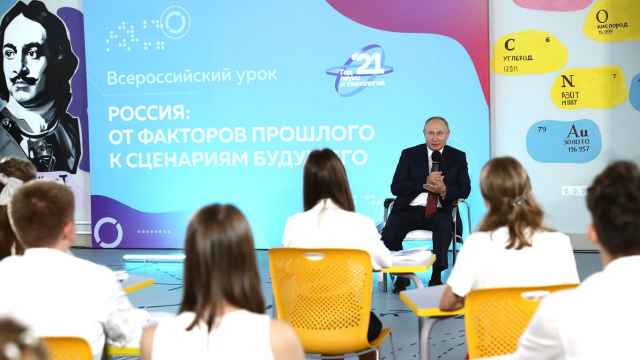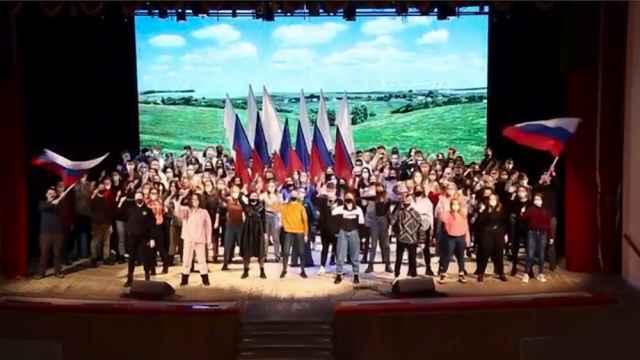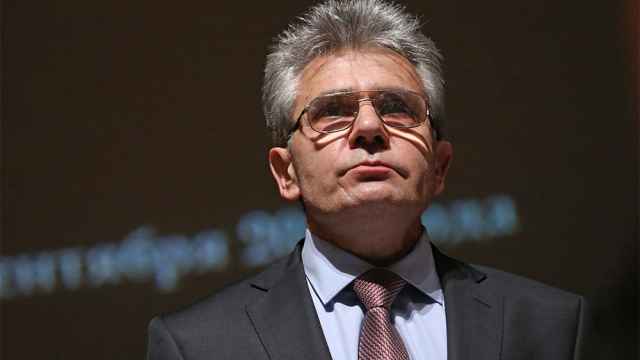President Vladimir Putin submitted legislation Thursday adding patriotism and war history to Russia’s education law.
Putin’s amendments seek to add “a sense of patriotism and citizenship, respect for the memory of the defenders of the Fatherland and the achievements of the Fatherland’s heroes” to the law’s current definition of upbringing.
His proposals, which need votes of approval in both houses of Russia’s parliament as well as his own signature before entering law, follow a years-long trend of militarization of young Russians that has sparked heated public debates.
Putin established a military-patriotic youth movement in 2015 and created a patriotic directorate in the Russian Armed Forces in 2018. Security officials began sending delinquent juveniles to military-patriotic re-education camps last year, and the military announced plans to hold annual education camps for high-schoolers at a military-themed park near Moscow.
Earlier this month, Putin reiterated his long-held stance identifying patriotism as Russia’s national idea.
Observers noted Friday that Putin’s proposal cites an article in the Constitution that is yet to take effect because of a postponed public vote on new amendments Putin had proposed in January.
Those amendments also contain provisions allowing Putin, 67, to extend his 20-year rule into 2036.
A Message from The Moscow Times:
Dear readers,
We are facing unprecedented challenges. Russia's Prosecutor General's Office has designated The Moscow Times as an "undesirable" organization, criminalizing our work and putting our staff at risk of prosecution. This follows our earlier unjust labeling as a "foreign agent."
These actions are direct attempts to silence independent journalism in Russia. The authorities claim our work "discredits the decisions of the Russian leadership." We see things differently: we strive to provide accurate, unbiased reporting on Russia.
We, the journalists of The Moscow Times, refuse to be silenced. But to continue our work, we need your help.
Your support, no matter how small, makes a world of difference. If you can, please support us monthly starting from just $2. It's quick to set up, and every contribution makes a significant impact.
By supporting The Moscow Times, you're defending open, independent journalism in the face of repression. Thank you for standing with us.
Remind me later.


